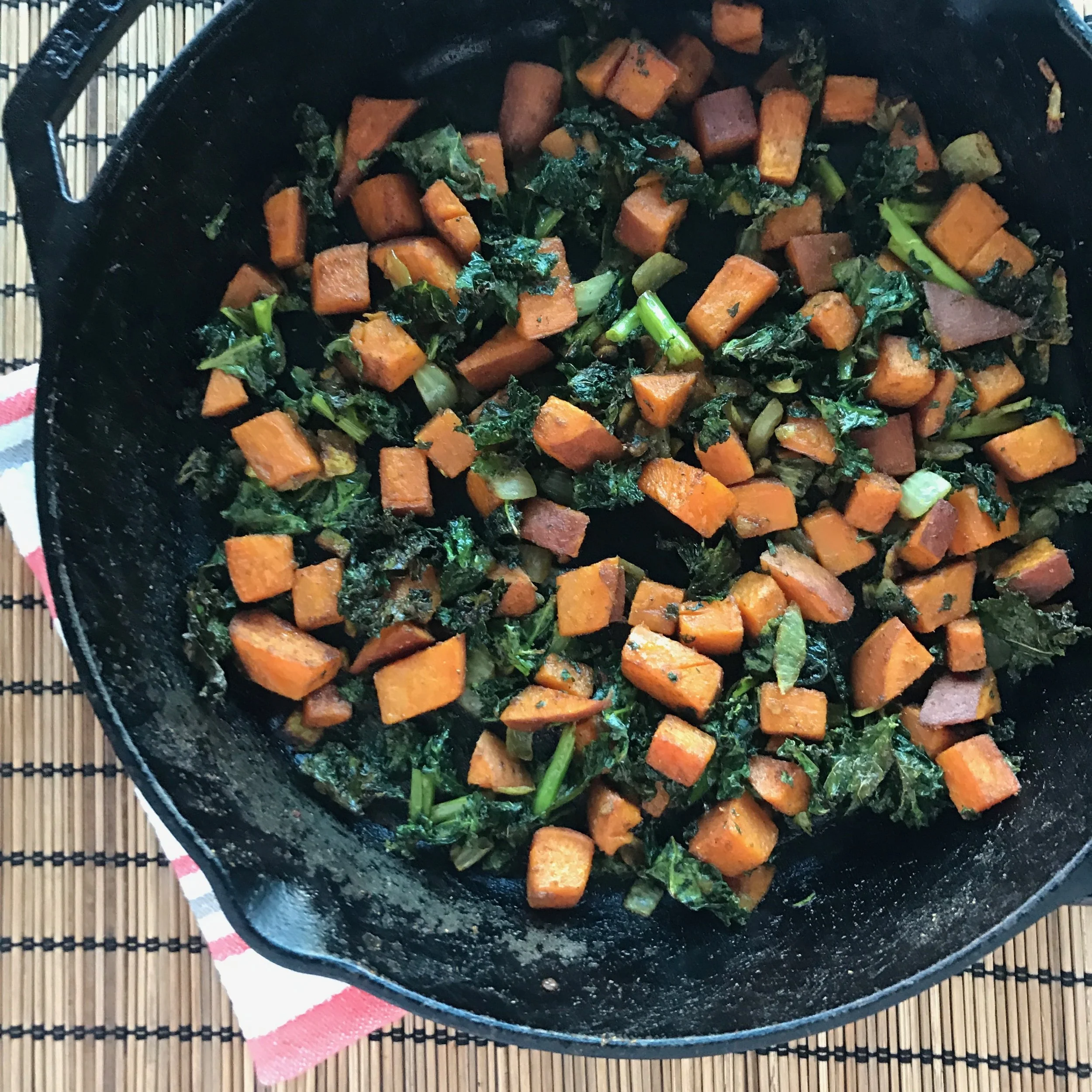Ingredients:
- 1 tbsp. Ras El Hanout
- 1 sweet potato (diced)
- 1/2 bunch Green Kale (chopped)
- 1/2 yellow onion (diced)
- 2 cloves garlic (smashed)
- 2 tbsp coconut oil (divided)
- Sea salt
- 1 tsp olive oil
Makes enough for 2-3 servings.
Directions:
Preheat oven to 400°F. Set a cast iron skillet over medium-low heat on the stove. Place another small pot filled with 2 cups water on boil and add a pinch of sea salt and a tsp. of olive oil to water.
Once preheated add the Ras El Hanout, a pinch of salt, and 1 tbsp of coconut oil to the pan and stir. Cook the spices into the coconut oil for about 2-3 minutes until fragrant. Meanwhile, place your chopped sweet potatoes into the boiling water and let them par-boil for 3-4 minutes (should be easily fork-able but not soft). Strain all water from potatoes and set aside.
Add garlic and onions to cast iron skillet and stir to coat spices and oil evenly. Let onions and garlic cook until onions are translucent. About 5 minutes.
Add remaining tbsp coconut oil to pan and scrape the pan while stirring to loosen crispy spices and deglaze the cast iron skillet. Add sweet potatoes and kale to pan and stir to coat evenly.
Season with another pinch of salt and transfer cast iron to the preheated oven and let bake for 15-20 minutes until your potatoes and kale start to crisp up.
I like to finish the dish on broil for the last minute or two to get my hash extra crispy, but it's up to you how you like it! After it's done, remove from the oven and enjoy as a side dish to any meal or with a fried egg for breakfast.
I made this dish for dinner last night and cooked a filet of Alaskan wild-caught salmon to enjoy with the hash. To do so, I used two tablespoons of the Cilantro Oil I posted the recipe for yesterday and simply sautéed the fish in a pan with the oil, salt & pepper over medium low heat for 3 minutes while constantly spooning the hot oil over the fish. I then finished it in the oven during the last few minutes of the hash until the fish flaked when I forked it. Very simple dish to execute and it came out tasting absolutely delicious!
If you're unfamiliar with Ras El Hanout, this is a great introductory dish for you to try it out with! (You can find a great organic Ras el Hanout by clicking this link here.) The name is Arabic for "head of the shop" (similar to the English expression "top-shelf”) and implies a mixture of the best spices the seller has to offer. Ras el hanout is used in many savory dishes, sometimes rubbed on meat or fish, or stirred into couscous or rice. The mix is generally associated with Morocco, although neighboring North African countries use it as well!
Be sure to check out my last post for the full Cilantro Oil recipe!



